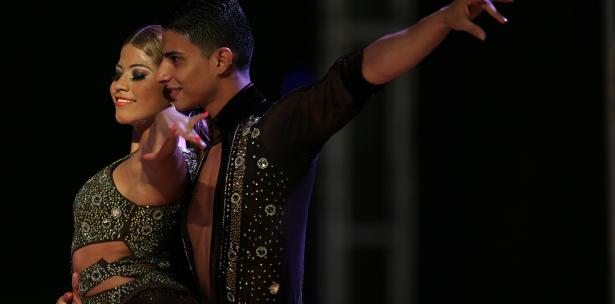Pelo Malo
In Pelo malo, the new coming-of-age drama from Venezuelan director Mariana Rondón, the viewer is fully immersed in the vibrant, hustle-and-bustle world of Caracas and its high-rise social housing projects.
Filmed from a child’s-eye-view, Pelo Malo centres on a resentful mother and son relationship in which nine-year old Junior’s (Samuel Lange) stubborn desire to straighten his curly hair for his yearbook photo places him in direct conflict with his put-upon single mother Marta, an unemployed widow perfectly played by Samantha Castillo. Rondón uses this family crisis as a starting point to examine a host of social issues: gender identity, homophobia, non-conformism and social deprivation are all addressed over the course of the film.
Pelo Malo’s gritty, observational style, combined with the brilliantly naturalistic performances of both Lange and Castillo, recall the social-realist films of admired directors such as Ken Loach and lend a weighty authenticity to Rondón’s vision of Chavez’s socialist utopia gone awry.
Interestingly, the film never explicitly shows the societal violence inflicted by men despite it being ever present in the lives of these characters: the sound of gunshots outside Junior’s apartment window, TV news reports of murdered mothers and the presumably gun-related death of Junior’s father leave us in no doubt as to the very real impact of violent gun crime on the daily lives of Junior and Marta. In spite of these dark undertones, Pelo Melo refuses to wallow in miserablism, instead adopting a defiant stance in the face of such social hardship and prejudice.
This is honest, socially-engaged filmmaking full of observational insight and humanity. For Rondón, at least, there is still cause for hope in a Venezuela where appearance is everything, otherness is unacceptable, and gender roles are oppressively fixed.
Pelo Malo showing at Cine Tonala throughout this month.
Fury
3 stars
We are in the last throes of the Second World War. The Nazis are baddies. They speak foreign. The Americans are goodies. They have tanks. Who will win?
Clearly not Europe. All but wiped from this account, you could be forgiven for thinking that a ragtag bunch of grisly Hollywood hunks rode into Germany single-handedly and stopped the Nazis. Allied powers what-now? There is no possibility of any other nationality getting a look-in here.
However, as simplified as this version of history is, it is very entertaining. The battle-hardened steely eyes and chiseled jaw of Brad Pitt cut a fine figure on the battlefield. His men won’t let him down, and he’s seen too much action to even know what fears means. Plus, he has a tank.
The tank is the real star here. Claustrophobic battle sequences and intimate banter between the guys drive the film along at un-tank-like pace. It’s toys for the boys. The tank rolls over dank fields and ruined towns, decimating everyone and everything in its path. It’s operated by the likes of Shia Lebeouf, and other more substantial actors.
They have just one aim: to kill Nazis. Can they win the war single-handedly? Don’t bet against it. And if not? Then they will die trying goddam it! Nuance and historical perspective? You won’t find that here. I like patriotism with my popcorn.
The Babadook
This movie started out as a Kickstarter project, and is the first feature for writer-director Jennifer Kent. It is an outstanding debut, one of the most powerful psychological horror films since Rosemary’s Baby.
A quiet Adelaide suburb houses a troubled mother and son relationship. An absent father figure looms large in their consciousness. The strains of being a single parent are brought agonisingly into focus. Sleep deprivation and blistering temper tantrums accrue a knife-like heightened tension as Amelia (Essie Davis) seeks to subdue her difficult offspring.
Davis delivers a staggering performance as a woman on the edge, and Daniel Henshall, her son Sam, is also astonishing; by turns irritating, affectionate and unruly. Into this fray appears a sinister new bedtime story, and so the stage is set for the Babadook.
This new terror seems to be slowly manifesting itself into a tangible evil, and its presence exacerbates the already fractured family bonds. Kent utilises some classic horror tropes, but it is the relationship between mother and son that is so well drawn.
You are petrified, and emotionally invested in what will become of them. The unseen terror seems to lurk around every corner and hides in every shadow.
If it’s in a word, or it’s in a look, you can’t get rid of the Babadook.
It’s like post-natal depression meets Freddy Kruger. Where does the real threat to her son lie, in the Babadook or within her failure to cope, or both? The tensions are ramped up to a climax, but sadly the ending is a cop-out.
With so many intelligent ideas, it finishes in a disappointing and bizarre fashion. The white-knuckle ride is a powerful one though, and by the end I was terrified not just of the Babadook, but of parenthood too.
By Robin Davies & Duncan Hall






